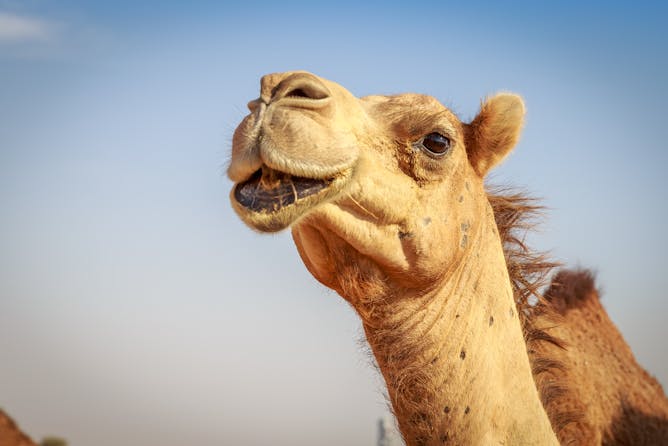|
Have you ever found yourself reeled in by an advert promising wellness if only you buy a particular product? How long did the good feelings last for? Probably not as long as you were hoping. As psychologists Ben Gibson and Victoria Ruby-Granger write, if wellness can be bought, why aren’t we all happier?
There is a wellbeing model highly regarded by psychology researchers. Humans have fundamental needs to feel connected to other people, competent and in control. You need to nurture all three if you want lasting contentment. The bad news is it takes a lot more effort than lighting a few candles and running a bubble bath. The good news is that it mentions playing video-games.
Meanwhile, the demand for camel milk is growing. Read why it could one day replace cow milk for many and why that’s not a good thing. And concerns are growing that Russia is preparing to deploy nuclear weapons in space to take out
satellites.
Do we need to end our obsession with economic growth? This is a key question in difficult times. Join us for an event in London on 18 April to hear from renowned economist Daniel Susskind, who will explore the past, present, and future of economic growth – and how we should rethink it.
|

|
Jenna Hutber
Commissioning Editor, Science
|
|

There’s nothing wrong with a bubble bath but there’s more to wellness than pouring a glass of wine and lighting some candles.
Chiociolla/Shutterstock
Ben Gibson, De Montfort University; Victoria Ruby-Granger, De Montfort University
Wellness actually often involves a lot of effort.
|

Yasser El Dershaby / Shutterstock
Ariell Ahearn, University of Oxford; Dawn Chatty,, University of Oxford
The largest farm, in the UAE, has more than 10,000 camels.
|

metamorworks/Shutterstock
Michael Mulvihill, Teesside University
The Starfish Prime test in 1962 showed how dangerous it would be to detonate a nuclear weapon in space.
|
World
|
-
Amalendu Misra, Lancaster University
The armed gangs of Haiti have a very clear assessment of their power as movers and shakers of the country’s future.
|
|
Politics + Society
|
-
Richard Harris, University of Bristol
This service is a good first step towards a one-stop shop for easy access subnational statistics to understand local areas and how they’re changing.
-
Stephen Barber, University of East London
The first-past-the-post electoral system has helped the Conservatives stay in power for much of the past century. Now it could lock them out.
|
|
Arts + Culture
|
-
Sarah Lonsdale, City, University of London
An expert in journalists in fiction and film reviews Gillian Anderson’s portrayal of Emily Maitlis.
-
Till Weingärtner, University College Cork
One hundred years after her birth, Hideko Takamine’s films deserve to be more widely seen outside Japan
-
Jane Wright, The Conversation
That’s all your drama needs sorted for this week, plus something to feed your craft addiction and a look at Jesus’s six-pack.
-
Howard Monk, University of Southampton
Cobain was very much the anti-superstar of his time.
|
|
Business + Economy
|
-
Jane Parry, University of Southampton; Michalis Veliziotis, University of Southampton
A statutory right to request flexible-working arrangements was introduced in 2014 but has been little used. New legislation coming into force could change all that.
-
Dawid Trzeciakiewicz, Loughborough University; Richard McManus, Canterbury Christ Church University
Different taxes affect investment in different ways.
|
|
Health
|
-
Bunmi Omorotionmwan, Nottingham Trent University
C butyricum promotes a robust immune system and restores out gut microflora.
-
Giovanni Sala, University of Liverpool; Shu Zhang, National Center for Geriatrics and Gerontology
The traditional Japanese diet contains plenty of rice, fish, pickles, green tea, soybeans, miso and shiitake mushrooms.
|
|
Science + Technology
|
-
Lucinda King, University of Portsmouth
An instrument on the Europa Clipper mission might be able to detect biological cells from space.
|
|
|
|
| |
|
|
|
|
| |
| |
| |
| |
| |
|
|